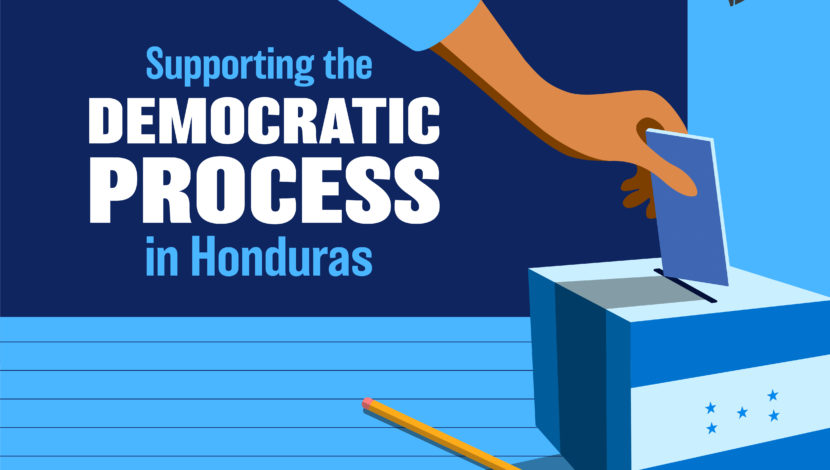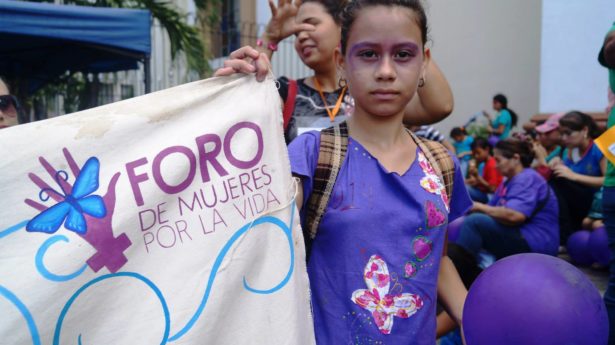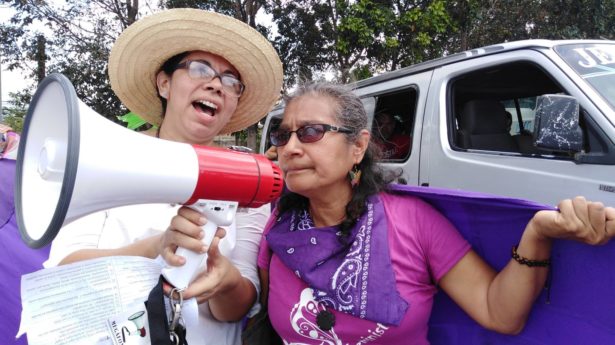The Unitarian Universalist Service Committee advances human rights through grassroots collaborations.
Three Ways Honduras’ Presidential Election Could Promise a New Beginning

By on December 6, 2021
In Honduras’ quadrennial presidential elections, Libre Party candidate Xiomara Castro declared victory after leading her opponent by a nearly 15-point margin. This new leadership promises a new beginning for the Central American country and a chance to repair the damage of more than a decade of corrupt rule by the right-wing National Party, which seized power from the democratically-elected president Manuel Zelaya in 2009 through a military- and business-backed coup.
We congratulate the people of Honduras on a historic election with a record turnout of 69.3%. However, we are also all-too aware of the history of right-wing politicians in Honduras—often acting with U.S. support—snatching away the results of a popular election that threatens the country’s entrenched elite interests.
Below are three key ways that this year’s election might promise a new start for Honduras, if they are allowed to stand. These exciting possibilities are a call to action for the U.S. government to respect these results and stand foursquare behind the popularly-elected new president of Honduras as she is sworn in.
- Xiomara Castro, Honduras’ new elected leader, would be the first woman president of the country. As UUSC’s Honduran partners Foro de Mujeres have documented, women in Honduras face high rates of gender-based violence and femicide—crimes for which there is often systemic impunity due to corruption, militarism, and a patriarchal monopoly on the state. Castro has promised to address this legacy by promoting gender equality, fighting the debilitating corruption that corrodes public services, and improving access to reproductive rights.
- Castro will also be the first elected leader of Honduras to take office from outside the ruling National Party in 12 years. Her husband, Manuel Zelaya, was forced from power through a coup in 2009, after seeking to enact popular land reforms that would protect the tenure of subsistence farmers against predatory agribusiness interests. Disgracefully, the U.S. government under President Obama and Vice President Biden sided with the post-coup regime. The right-wing National Party has ruled the country ever since, returning to power in 2017 through an election widely denounced as fraudulent. The election of a leader from the country’s political opposition offers a chance to turn the page on this history and reassert democratic norms in Honduras.
- Castro has promised to root out corruption and to pursue more egalitarian policies, including by repealing the creation of so-called “special economic development zones”—areas with reduced regulatory oversight where exploitation, corruption, displacement, and ecological damage often go unchecked. As UUSC’s partners in Honduras have extensively documented, the country faces high rates of violence against human rights defenders (in particular women, Indigenous, and Afro-Honduran human rights defenders), corruption in high places, and human rights abuses linked to extractive industries and U.S.-backed neoliberal approaches to economic development (including the “special economic development zones”). These social problems not only harm innocent people, they also deprive people of their right to stay safely in their homes, fueling mass migration and forced displacement throughout the region. A new president who campaigned on promises to address corruption and promote more socially progressive policies is a promising sign of change in a country too long beset by these injustices.
The election of any leader, however promising, is never a guarantee in itself that human rights will be upheld. Moreover, right-wing factions in Honduras have a demonstrated history in the recent past of disregarding the results of popular elections and seizing power unlawfully. The U.S. government, in turn, has historically sided with these corrupt influences in Honduras, instead of respecting the democratic results of the country’s elections.
President Biden must not repeat these mistakes of the past, including those of the administration in which he previously served. The United States must respect the Honduran people’s choice at the polls and work with the country’s new president to chart a more promising and rights-respecting future.

